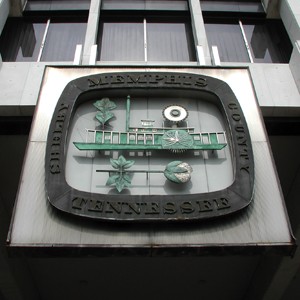Memphis City Council districts are being redrawn. This happens every ten years. It is vitally interesting to current council members, pretty interesting to potential challengers and people who keep up with local politics, and a bore to those who have no idea who their council representatives are.
But like soccer and the NBA draft, redistricting has its moment in the media spotlight every now and then, and the process says something about how Memphis is changing and where black and white people are moving to and from. This is where things get interesting.
Memphis has a population of 646,889. There are 13 members of the City Council. Seven of them come from district seats, and six of them come from “super districts” which are combinations of three or more smaller districts. Over time, some districts gain population while others lose. In the proposed redistricting, which the council will take up on July 19th, each regular district has about 92,000 people, plus or minus 5 percent. Each super district has about 323,000 people.
There are 409,818 black people, 190,141 white people, and 42,020 Hispanics, 10,193 Asians, and 26,178 “other” in Memphis. Since 2000, the population of Memphis remained fairly steady but the white population decreased from 34 percent to 29 percent and the black population increased from 61 percent to 63 percent.
The present council has 12 members because the 13th member, Barbara Swearengen Ware, resigned. Six members are black and six are white.
City Council attorney Allan Wade was in charge of redistricting. Wade got raw data from the Office of Planning and Development and input from all seven district council members and most of the super-district members. Is redistricting, then, a rigged game to preserve the status quo?
“Politics was not involved at all,” said Wade, although that could change once the proposal is taken up by the council. Wade was guided by the principle of one man, one vote to make districts roughly the same size and by the dictates of the 1995 Voting Rights Decree to reflect racial factors. Four of the seven districts are at least 75 percent black, as is one of the super districts. Hence there are likely to be at least seven black council members, as there would be at present if Ware had not quit.
The district that gained the most population between 2000 and 2010 was District 2, represented by Bill Boyd. It includes most of East Memphis and Cordova and is 52 percent white and 39 percent black in the proposal. The other district that gained population was District 1, represented by Bill Morrison. It includes Raleigh, Frayser, and other areas and is 36 percent white and 54 percent black in the proposal.
The districts that lost the most people were District 6, represented by Ed Ford, and District 4, represented by Wanda Halbert. In the proposed redistricting, District 6 is 89 percent black and District 4 is 78 percent black.
The whitest district is District 5, represented by Jim Strickland. It includes a lot of Midtown and is 67 percent white in the proposal. The blackest district is District 6. It includes a lot of South Memphis.
The super districts — protests and disclaimers notwithstanding — are rigged to elect black or white candidates. Super District 8, represented by Joe Brown, Janice Fullilove, and Myron Lowery, is 85 percent black in the proposal. Super District 9, represented by Reid Hedgepeth, Shea Flinn, and Kemp Conrad, is 48 percent white and 41 percent black in the proposal.
This is not to say that a white candidate cannot win in a majority-black district or vice versa. There is no runoff in Super District races, but there is a runoff in district races between the top two candidates if no candidate gets a majority of the vote. That is how Morrison won his seat in 2007. It is highly unlikely that a white candidate could win in Super District 8, but it is not unlikely that a black candidate could win in Super District 9. Candidates in Super District races must declare which “position” they are seeking, which amounts to choosing their opponent.
The best way to get on the council, should that be your goal, is to run for an open seat. Incumbents are tough to beat unless they get in legal trouble, as we have seen. Nine of the current council members were elected for their first terms in 2007. So far, nobody on the council except for Ware has said they do not plan to seek reelection.
I asked a few present and former council members for some how-to suggestions. This what they said.
District campaigns are different from super-district campaigns. You can go door-to-door in the former, not the latter.
TV advertising is helpful if not mandatory in super districts.
The voting population is not the same as the general population. If you don’t “get” that then you probably should not consider running.
Social media can get you some initial buzz and boost your confidence, but it’s hard to run on it because the virtual community may not live in Memphis.
Try try again. Many a council member has won second time around.
The filing deadline is July 21st. The election for council and mayor is October 6th, with early voting starting before that.
